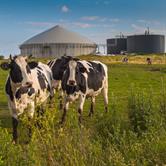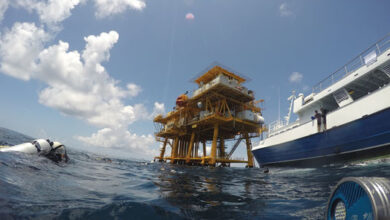Towards a Cleaner Future: Sustainable Management of Waste in Cities, Farms, and Industries

The issue of waste management has been a persistent challenge for municipalities, agriculture, and industrial sectors. These waste materials cause environmental pollution, health hazards, and economic losses. However, these waste streams are also a potential source of valuable resources that can be recovered and converted into value-added products. The utilization of waste as a resource for value-added products has significant potential to reduce environmental degradation, promote sustainable development, and create economic opportunities.
By adopting waste-to-energy and waste-to-resource strategies, we can transform waste materials into valuable products that contribute to the circular economy and promote resource efficiency. The United Nations Sustainable Development Goals (SDGs), particularly SDG 12, for Sustainable Consumption and Production, aims for a net reduction in global waste generation by 2030, either by reducing total generation or increasing recycling and composting rates. This Research Topic has been developed in line with the United Nations International Day of Zero Waste to draw attention to the global impact of waste from Cities, Farms, and Industries on climate change, biodiversity loss, and pollution; and to promote the transition to a circular economy.
The objective of this Research Topic is to highlight the potential of municipal, agriculture and industrial waste as a resource of value-added products and to suggest strategies for their efficient utilization. It focuses on the utilization of these waste in the production of compost, biofuels, bioplastics, animal feed, etc. It will, also, highlight the benefits of waste management through waste-to-energy and waste-to-resource strategies. This Research Topic will provide insights into the environmental and economic benefits of waste management strategies and suggest ways to overcome the challenges associated with waste utilization. The proposal will also provide recommendations for policymakers, waste management professionals, and other stakeholders to promote the adoption of waste-to-resource strategies. This Research Topic welcome submission of the following article types: Original Research, Systematic Review, Review, Mini Review, Brief Research Report, Community Case Study, Data Report, Methods, Policy Brief, Policy and Practice Reviews. This Research Topic will welcome submissions around the following five themes:
Theme 1: Technologies for Recovery of Valuable Resources from Municipal, Agricultural and Industrial Waste-. This theme will look at the various technologies and approaches that are used to turn municipal, agricultural and industrial waste into value-added products. It will compare and contrast between technologies, highlighting the benefits advantages and drawbacks disadvantages of each approach. This theme will benefit stockholders to select suitable technologies for the recovery of valuable resources from these waste streams.
Theme 2: The Benefits of Using Municipal Agricultural and Industrial Waste as a Resource of Value-added Products. The benefits of using waste from cities, farms, and industries will be investigated in this theme. For example, it will go over how waste-to-energy technologies can help reduce greenhouse gas emissions, promote energy independence, and create jobs in the local community. Within the context of the circular economy, this theme will, also, share some insights into the supply chain and current management of these waste streams.
Theme 3: Economic analysis: The economic feasibility of producing value-added products from municipal, agricultural and industrial waste can be evaluated by conducting cost-benefit analysis. This theme will analyze the difficulties associated with implementing technologies for the recovery of valuable resources from these waste streams. It will investigate regulatory constraints, environmental barriers, public perception and acceptance. The market potential and demand for these value-added products will be identified through market research and analysis.
Theme 4: Case Studies in Municipal, Agricultural and Industrial Waste Management. This theme will include case studies of successful waste-to-energy and waste-to-resource projects from around the world. It will provide insights into the environmental and economic benefits of waste management strategies. It will look at case studies from around the world to see how these projects overcame the challenges of waste management and suggested ways to overcome the challenges associated with waste utilization.
Theme 5: Future of Municipal, Agricultural and Industrial Waste Management. The future of resource recovery from waste of cities, farms, and industries will be investigated in this theme. It will look at sustainable solution for waste management and contribute to the circular economy. Commercialization of the recovered resources will, also, be emphasized in order to bring economic benefits to all stakeholders.
Theme 6: Use of waste as an energy source. The scientific, technological, economic, moral and other issues associated with the recovery of energy from waste need to be considered if we are to reach a more sustainable tomorrow.
Theme 7: While it is possible to replace fossil fuels in aviation, road transport, electricity production and other applications which often use fossil fuels. The use of these biomass replacements sometimes exacerbates or mitigates issues currently experienced with fossil fuel powered systems. For example, the use of some biodiesels results in a reduction in the toxicity of engine exhaust gases while a replacement of coal with biomass can alter the behavior of ashes. Both adaptation of existing plant and equipment to new sustainable fuels and the development of new equipment falls within this topic.
Keywords:
Municipal solid wastes, Sustainable management, Circular economy, Renewable Energy, Biomass, Biogas, Waste Recycling
Important Note:
All contributions to this Research Topic must be within the scope of the section and journal to which they are submitted, as defined in their mission statements. Frontiers reserves the right to guide an out-of-scope manuscript to a more suitable section or journal at any stage of peer review.
By adopting waste-to-energy and waste-to-resource strategies, we can transform waste materials into valuable products that contribute to the circular economy and promote resource efficiency. The United Nations Sustainable Development Goals (SDGs), particularly SDG 12, for Sustainable Consumption and Production, aims for a net reduction in global waste generation by 2030, either by reducing total generation or increasing recycling and composting rates. This Research Topic has been developed in line with the United Nations International Day of Zero Waste to draw attention to the global impact of waste from Cities, Farms, and Industries on climate change, biodiversity loss, and pollution; and to promote the transition to a circular economy.
The objective of this Research Topic is to highlight the potential of municipal, agriculture and industrial waste as a resource of value-added products and to suggest strategies for their efficient utilization. It focuses on the utilization of these waste in the production of compost, biofuels, bioplastics, animal feed, etc. It will, also, highlight the benefits of waste management through waste-to-energy and waste-to-resource strategies. This Research Topic will provide insights into the environmental and economic benefits of waste management strategies and suggest ways to overcome the challenges associated with waste utilization. The proposal will also provide recommendations for policymakers, waste management professionals, and other stakeholders to promote the adoption of waste-to-resource strategies. This Research Topic welcome submission of the following article types: Original Research, Systematic Review, Review, Mini Review, Brief Research Report, Community Case Study, Data Report, Methods, Policy Brief, Policy and Practice Reviews. This Research Topic will welcome submissions around the following five themes:
Theme 1: Technologies for Recovery of Valuable Resources from Municipal, Agricultural and Industrial Waste-. This theme will look at the various technologies and approaches that are used to turn municipal, agricultural and industrial waste into value-added products. It will compare and contrast between technologies, highlighting the benefits advantages and drawbacks disadvantages of each approach. This theme will benefit stockholders to select suitable technologies for the recovery of valuable resources from these waste streams.
Theme 2: The Benefits of Using Municipal Agricultural and Industrial Waste as a Resource of Value-added Products. The benefits of using waste from cities, farms, and industries will be investigated in this theme. For example, it will go over how waste-to-energy technologies can help reduce greenhouse gas emissions, promote energy independence, and create jobs in the local community. Within the context of the circular economy, this theme will, also, share some insights into the supply chain and current management of these waste streams.
Theme 3: Economic analysis: The economic feasibility of producing value-added products from municipal, agricultural and industrial waste can be evaluated by conducting cost-benefit analysis. This theme will analyze the difficulties associated with implementing technologies for the recovery of valuable resources from these waste streams. It will investigate regulatory constraints, environmental barriers, public perception and acceptance. The market potential and demand for these value-added products will be identified through market research and analysis.
Theme 4: Case Studies in Municipal, Agricultural and Industrial Waste Management. This theme will include case studies of successful waste-to-energy and waste-to-resource projects from around the world. It will provide insights into the environmental and economic benefits of waste management strategies. It will look at case studies from around the world to see how these projects overcame the challenges of waste management and suggested ways to overcome the challenges associated with waste utilization.
Theme 5: Future of Municipal, Agricultural and Industrial Waste Management. The future of resource recovery from waste of cities, farms, and industries will be investigated in this theme. It will look at sustainable solution for waste management and contribute to the circular economy. Commercialization of the recovered resources will, also, be emphasized in order to bring economic benefits to all stakeholders.
Theme 6: Use of waste as an energy source. The scientific, technological, economic, moral and other issues associated with the recovery of energy from waste need to be considered if we are to reach a more sustainable tomorrow.
Theme 7: While it is possible to replace fossil fuels in aviation, road transport, electricity production and other applications which often use fossil fuels. The use of these biomass replacements sometimes exacerbates or mitigates issues currently experienced with fossil fuel powered systems. For example, the use of some biodiesels results in a reduction in the toxicity of engine exhaust gases while a replacement of coal with biomass can alter the behavior of ashes. Both adaptation of existing plant and equipment to new sustainable fuels and the development of new equipment falls within this topic.
Keywords:
Municipal solid wastes, Sustainable management, Circular economy, Renewable Energy, Biomass, Biogas, Waste Recycling
Important Note:
All contributions to this Research Topic must be within the scope of the section and journal to which they are submitted, as defined in their mission statements. Frontiers reserves the right to guide an out-of-scope manuscript to a more suitable section or journal at any stage of peer review.



